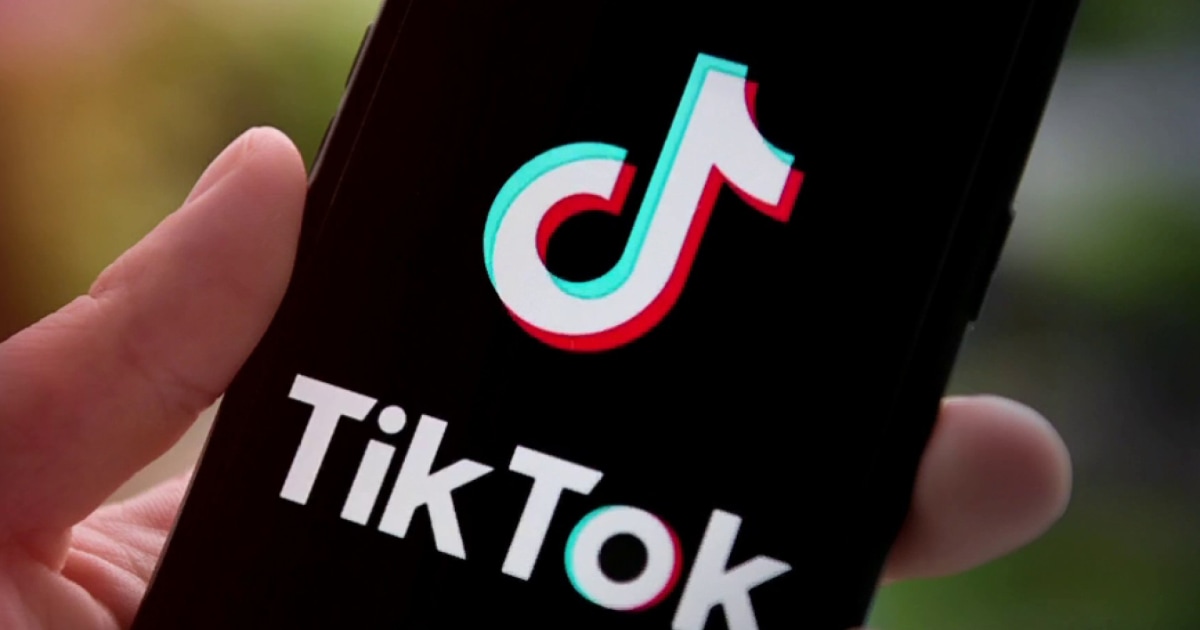- Eco Punks Gazette
- Posts
- Issue 33 - Why They're All Wrong
Issue 33 - Why They're All Wrong
TikTok Won't Be Banned - But That May Not Matter
Welcome to issue 33, an issue prepared for you for free! Lol. We didn’t intend for this to be the TikTok issue, but given the news, it kind of turned out that way. Let’s use TikTok videos to augment our analysis, as a means of encouraging those of you who are still sleeping on TikTok to check it out.
Otherwise we’ve been swamped with client work, but we also ensure that we spend part of our scarce time analyzing news and conducting original and applied research. Primarily for our own purposes, secondarily for our clients, and of course, for you, our fellow Eco Punks.
Table of Contents
Rethinking Disability (and Down Syndrome)
CoorDown is an Italian network that coordinates Down Syndrome Associations, providing support, and raising awareness. They’ve been producing amazing and radical campaigns that seek to counter popular perceptions of disability, and down syndrome in particular.
For example check out this recent video they put out in advance of World Down Syndrome Day:
@coordown If we have positive assumptions about people with Down syndrome, we'll give them more opportunities. And maybe these positive assumptions ... See more
It’s been out for 24 hours, and already has several million views. That’s the power of TikTok when it comes to sharing videos like this rapidly and effectively. Here’s a similar video CoorDown put out last year:
@coordown Our film for #WorldDownSyndromeDay. Share the #RidiculousExcuses you’ve been given.
I (Jesse) was fortunate enough to spend a couple of summers working with kids who have Down Syndrome and it was one of the best experiences in my life. Spending time with and empathizing with these kids not only changed my life, but greatly influenced my abilities as a public speaker. Understanding how to communicate with people who are different, in a manner that is both respectful, compassionate, and empowering, is a life skill we should all seek.
Is Time Running Out for TikTok?
The US is once again obsessed with the power and future of TikTok. Yet the real headline is the bi-partisan effort underway. When was the last time you recall an issue garnering this many votes from members of both parties?
Will TikTok be banned? No, we don’t think so. Will TikTok be sold? Maybe, but not in a manner that would satisfy US politicians. China has a law that prevents a Chinese company from selling sensitive technology to a foreign entity without government approval. And so far the Chinese government is unimpressed:
It does seem absurd. The so-called capitalist country is complaining that they’re losing a competition with a foreign company. The so-called communist country is now mocking the capitalist country because they won’t compete?
Is China right? Is this the action of robber barons?
@lukedavidjohnson TikTok is not for sale, but our politicians sure are. They can call it what ever they want but it’s a ban or it’s theft it’s not right either way.
Yet, what about US concerns? Is China using TikTok to subvert American power and institutions? Definitely.
The following is a rather long video, not about TikTok per se, but it’s a great example of the kind of analysis you can find on TikTok. Not only do I not find this kind of content on other platforms, but if it is there, it languishes in obscurity. Yet on TikTok, this content finds an audience, thanks to the platform’s algorithm.
@caseyincontext The Viral Underclass is essential reading #trans #lgbt #disability #leftist
This is an election year in the US, and TikTok is going to be an election issue. The US Senate is expected to take their time, and not rush any legislation. However, Biden has indicated he will sign a bill banning TikTok if it makes it to the White House. Which means lots more fodder and time for this to grow and be part of the larger spectacle that is contemporary US politics.
In closing, going after TikTok is a legitimate national security issue for the US government, and it is also an incredibly stupid and shortsighted policy move. Contradiction meets incompetence, with the whole world watching.
Why Everyone Is Wrong About AI

Clowning around
The discourse surrounding Artificial Intelligence (AI) is reaching a pivotal moment, yet it's mired in a narrative that fails to capture the essence of what makes AI not just revolutionary, but fundamentally transformative for human society.
The prevailing marketing narrative and public conversation are, in many respects, misleading. They draw attention away from the real potential of AI and focus on superficial aspects that do not address the core opportunities and challenges that AI presents.
First, the concept of creating "trustworthy AI" is a poignant example of the current narrative's shortcomings. Trust cannot be manufactured or programmed; it is a human quality that is earned through interaction, vulnerability, and experience.
When we discuss imbuing AI with trustworthiness, we are skirting around the more critical issue of how humans can develop trust in AI systems through transparent processes, understandable outcomes, and by witnessing AI systems making decisions that align with ethical considerations, even when those decisions are not the most efficient or profitable.
Similarly, the well-intentioned goal to "remove bias from AI" misses a fundamental point about bias: it is an inherent aspect of decision-making processes, human or artificial.
The question should not be how we can create an unbiased AI—a Sisyphean task given that all data reflects the biases of those who collect it—but rather, which biases we are willing to accept and why. This reframing shifts the focus from an impossible standard of impartiality to a more practical discussion about values, ethics, and the kinds of societies we wish to build with AI as a tool.
Moreover, the current focus on the capabilities and limitations of the machine itself is a diversion from the more pressing issue: the human responsibility in deploying AI.
AI, by its nature, will never possess life or consciousness in the way humans understand these concepts. It is a tool, albeit an incredibly powerful one, that reflects the intentions, desires, and ethics of its creators and users. Thus, the conversation should not be about restricting what AI can do, but rather about how humans choose to use AI.
This requires a shift from individualistic and corporate-centric decision-making to collective engagement and responsibility. Ethics in AI should not be viewed as a set of constraints but as a foundational component that enables deeper exploration and utilization of AI technologies.
Ethical considerations should pave the way for innovative uses of AI that respect human dignity, promote societal well-being, and safeguard the environment. This perspective invites a more thoughtful integration of AI into human activities, one that leverages its capabilities to address complex global challenges in novel ways.
We stand at a crossroads where the potential of AI to redefine industries, societies, and human existence itself is immense. Yet, to harness this potential responsibly, we need to shift our focus from a narrow, techno-centric view of AI to a broader understanding of its role as a facilitator of human progress.
The voices that need amplification in this discourse are not those echoing conventional wisdom but the eco-punks, philosophers, ethicists, and visionary thinkers who see AI not as an end in itself but as a means to enrich human society.
To truly understand and leverage AI, we must move beyond fear and sensationalism. We should be questioning AI not from a place of apprehension, but with curiosity and a desire to explore uncharted territories. It is only by engaging with AI critically, ethically, and creatively that we can unlock its full potential to serve humanity.
The future of AI should not be shaped by those who sell it as snake oil but by those committed to exploring its profound implications for society, always with an eye towards empathy, equity, and sustainability.
Revisiting Welcome Back Kotter
Finally, TikTok also has tons of pirated content, i.e. content uploaded contrary to copyright concerns. Here’s a great example:
@huggyattack Replying to @lithiumproductions #snl #snlclassic #saturdaynightlive s20e3 10/15/94 John Travolta


Reply